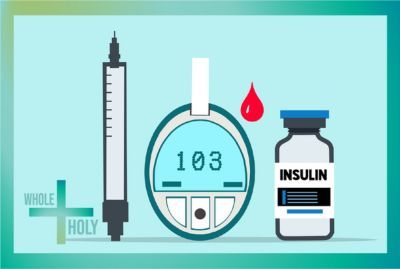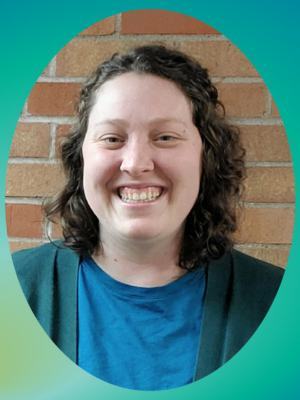
Whole & Holy: Navigating chronic conditions with self-compassion

It was December of 2014. I had just turned 26 and had spent the past six months with unexplainable symptoms and no diagnosis for what was wrong with me. Doctors were baffled. Finally, out of frustration and desperation, I began Googling my symptoms and became convinced I might have diabetes. Doctors never tested me for it because I was “too old to be Type 1, and too healthy to be Type 2.”
I listened to my intuition and borrowed a glucose meter from a family member a few days after Christmas. My blood sugar was so high that the meter didn’t even give me a number. I made a doctor appointment and was sent to an endocrinologist who told me I was in Diabetic ketoacidosis, a life-threatening side effect of out-of-control blood sugars. She then told me I did indeed have Type 1 diabetes (T1D), an autoimmune disease that was manageable but not curable.

Rev. Amelia Buschena
I had one semester of seminary left, had been married for one year, and was newly 26 when I quickly realized that “manageable but incurable” would hang over me for the rest of my life. I learned about carb counting, insulin dosing, how everything under the sun can impact your blood sugar, and that my pancreas no longer produces its own insulin. This meant I had to do the job of my pancreas from now on. I learned that most people don’t understand type 1 diabetes, and that life would forever look different. Two days later, I was released into the big, wide world with countless new prescriptions and a “can-do” attitude.
In December of 2024, I had my 10-year “diaversary”—a celebration that’s important to those in the T1D community because it means we’re here and we’re successfully living with this disease. In the past 10 years, I graduated from seminary, moved cross-country to Minnesota, served in college ministry and parish ministry, had two beautiful children, checked my blood sugar countless times, adjusted my plans regularly, treated low blood sugars and chased high ones, learned how to play tennis again, counted all the carbs, learned how to do almost everything in a new way, and most importantly, lived life fully—even if not as I had once imagined it. A chronic condition changes you. Life changes you. I’ve been reflecting on some things that have gotten me through these 10 years, and I hope they offer you something:
- Celebrate the wins because they matter! Every single one of them.
- Allow space to grieve the hard days, but don’t get stuck there. Chronic conditions will inevitably mean that sometimes, even if you’ve done everything perfectly, you’ll have an off day. Your numbers might be too high or too low, your energy might be low, and the Type 1 roller coaster might get the best of you. I've learned to embrace my frustration and sorrow on these days rather than pushing down those feelings. Once I acknowledge the emotions and things outside of my control, I can begin again.
- Remember, you are not your chronic condition! Something chronic undoubtedly becomes a part of who you are and your daily life, but it’s certainly not all you are!
- Surround yourself with the right people. If you don’t feel seen and heard by your doctor, seek out a new one. If your friends and family don’t understand the mental and physical effort you need to put in daily, gently remind them—and surround yourself with supportive people who “get it.”
- Listen to your intuition. You know your body better than anyone else; trust yourself in this.
- Burnout is real, and everyone with a chronic condition should keep an eye out for it. If you think you’ve hit burnout, talk to a good friend, find a great therapist, and be gentle and kind with yourself—you’re doing a great job!
Resources to consider as one confronts chronic health conditions could include:
Headspace or Calm meditation apps